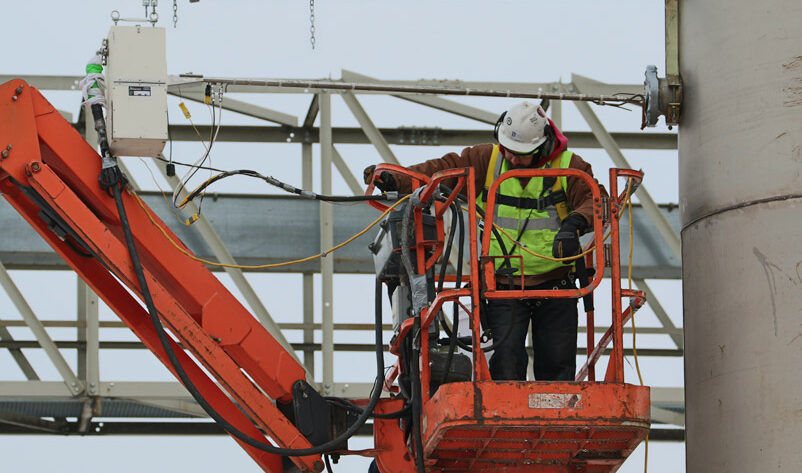Industrial Dust Control System Efficiency Test
In the realm of industrial operations, particularly within the oil and gas sector, maintaining stringent environmental standards is paramount. One critical aspect of ensuring compliance with these regulations involves the performance evaluation of dust control systems. The Industrial Dust Control System Efficiency Test is a specialized service designed to assess the effectiveness of dust collection devices used in various industrial settings.
The test evaluates how well a dust collector captures and retains particulate matter, thereby minimizing its release into the atmosphere. This is essential not only for environmental protection but also for worker safety and regulatory adherence. The test parameters are meticulously defined based on international standards such as ISO 12476-3:2015, ensuring that every evaluation adheres to best practices.
The process begins with a thorough inspection of the dust collector's design and operational characteristics. This includes examining the type of filter media used, the blower capacity, and the overall system layout. From there, the test proceeds by introducing a controlled amount of dust into the system under specific conditions. The efficiency is then measured based on how much of this dust remains in the exhaust stream.
The methodology involves collecting samples at various points within the system to analyze particulate matter content accurately. These tests are conducted multiple times to ensure consistency and reliability of results. Reporting follows a structured format that includes detailed descriptions of the test parameters, observed data, and compliance with relevant standards.
By performing this comprehensive evaluation, industries can identify areas for improvement in their dust control systems. This not only helps in maintaining regulatory compliance but also enhances workplace safety by reducing occupational exposure to harmful particulates.
- Compliance Verification: Ensures adherence to stringent environmental regulations.
- Safety Improvement: Reduces risks associated with airborne dust particles.
- Operational Efficiency: Identifies underperforming components for maintenance or replacement.
- Cost Savings: By optimizing system performance, operational costs are minimized.
The Industrial Dust Control System Efficiency Test is a vital component in the ongoing effort to protect both the environment and workers. Its rigorous nature ensures that industries can operate sustainably while meeting all necessary legal requirements.
Why It Matters
The importance of dust control systems cannot be overstated, especially within the oil and gas sector where processes generate significant amounts of particulate matter. The release of these particles into the atmosphere can have severe environmental impacts, including air pollution and climate change. Additionally, exposure to high levels of airborne dust poses serious health risks for workers, leading to respiratory issues and other medical conditions.
Compliance with environmental regulations is not just a legal requirement; it also plays a crucial role in an organization's reputation and sustainability goals. Non-compliance can result in hefty fines, reputational damage, and potential operational disruptions. The Industrial Dust Control System Efficiency Test helps companies stay ahead of these challenges by providing actionable insights into system performance.
Moreover, the test contributes to worker safety by minimizing occupational hazards. By ensuring that dust control systems are operating at peak efficiency, industries can create safer work environments. This proactive approach not only enhances operational reliability but also supports long-term business sustainability.
Benefits
- Regulatory Compliance: Ensures adherence to environmental regulations and standards.
- Worker Safety: Minimizes occupational exposure to harmful dust particles, enhancing workplace safety.
- Operational Efficiency: Identifies underperforming components for timely maintenance or replacement.
- Cost Savings: Optimizing system performance leads to reduced operational costs.
- Risk Mitigation: Reduces the risk of environmental and health-related issues by ensuring consistent system performance.
- Informed Decision-Making: Provides data-driven insights for strategic planning and continuous improvement.
The Industrial Dust Control System Efficiency Test offers a multitude of benefits that are essential for maintaining sustainable operations in the oil and gas sector. By leveraging this service, industries can ensure they meet all necessary legal requirements while also enhancing their operational reliability and worker safety.
Industry Applications
The Industrial Dust Control System Efficiency Test is applicable across various sectors where dust control systems are used. In the oil and gas industry, this test is particularly relevant for refining plants, petrochemical facilities, and natural gas processing units. The test helps in evaluating the efficiency of dust collectors installed to manage particulate matter generated during refining processes or handling of raw materials.
For the mining sector, this service supports the assessment of dust control systems used to minimize emissions from crushing operations or handling of ore. In manufacturing settings, it ensures that dust collection equipment is functioning optimally in environments where fine particles can pose significant health risks if not adequately controlled.
The test's versatility allows for its application across multiple industries beyond just oil and gas, including pharmaceuticals, food processing, and construction. By ensuring consistent system performance, this service supports a wide range of operations that rely on effective dust control to meet regulatory requirements and safeguard worker health.





